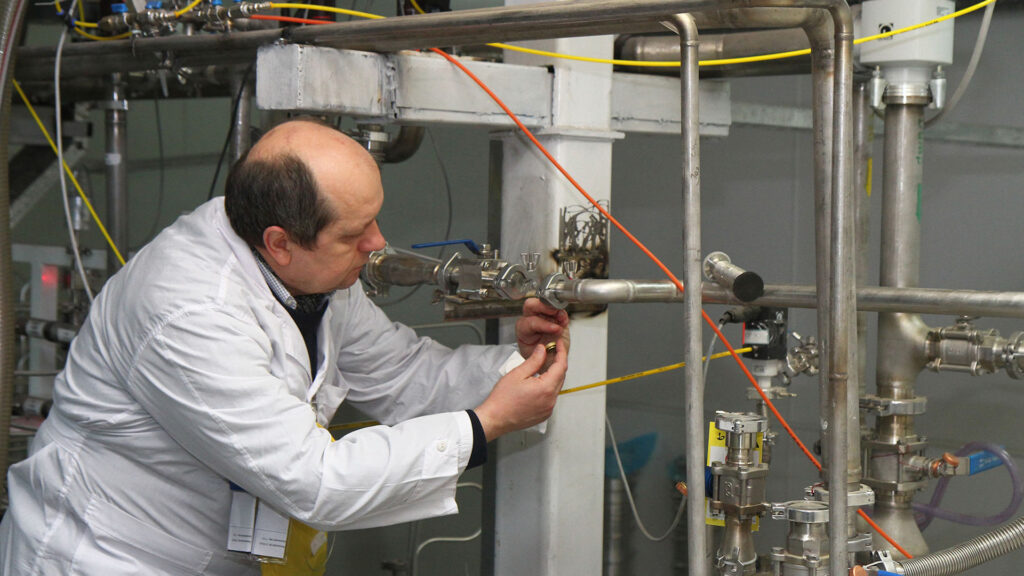President Donald Trump is pursuing a new nuclear deal with Iran as Israeli Prime Minister Benjamin Netanyahu warned that military action could come soon if diplomacy fails. The two leaders remain divided on how to curb Tehran’s nuclear ambitions, with Netanyahu pushing for a full dismantling of Iran’s enrichment facilities and Trump aiming to negotiate limits backed by the threat of force.
What is the status of US-Iran talks?
Talks have focused on curbing Iran’s nuclear program while avoiding a military clash.
Trump said on Sunday, May 25, that “something good” may be coming in the next two days, referring to negotiations aimed at restricting Iran’s ability to enrich uranium. U.S. and Iranian officials have reportedly discussed a preliminary agreement that would freeze enrichment, dilute stockpiles of near weapons-grade uranium or ship them abroad.
Iranian nuclear chief Mohammad Eslami said on Wednesday, May 28, that Tehran might permit U.S. inspectors working with the International Atomic Energy Agency to access nuclear sites if a deal is reached. He reaffirmed that uranium enrichment is a red line for Iran, calling it the “foundation and pillar” of its civilian nuclear program.
Iran’s peak summer electricity demand exceeds 72,000 megawatts, well above its actual capacity of 60,000 megawatts. The country’s largest nuclear facility, the Bushehr Nuclear Power Plant, contributes 1,000 megawatts and has reportedly saved the equivalent of 110 million barrels of oil over the past decade.
How does Iran’s nuclear power strategy affect the talks?
Eslami announced on Tuesday, May 27, that the country has officially launched a project to produce 20,000 megawatts of electricity through nuclear energy. Backed by the government and highlighted as a national priority by Supreme Leader Ayatollah Ali Khamenei, the plan includes the construction of a new $15 billion nuclear facility in Hormozgan Province. Iran designed the plant to have a capacity of 5,000 megawatts.
Analysts said the timing of Eslami’s remarks may help Tehran bolster its case for retaining uranium enrichment capabilities during negotiations with the U.S. Iran argued that its enrichment program supports its civilian energy goals under the Treaty on the Non-Proliferation of Nuclear Weapons.
However, American and Israeli officials said they remain skeptical and warned that Iran could quickly shift from civilian use to weapons-grade enrichment if enforcement lapses.
What is motivating Trump’s push for a deal?
Trump said he prefers a diplomatic resolution to Iran’s nuclear program. His administration is under pressure from allies, the U.S. Congress and Israel. Still, Trump appears motivated to strike a deal that he can promote as stronger and more effective than the 2015 accord brokered by then-President Barack Obama.
Esfandyar Batmanghelidj, CEO of the London-based think tank Bourse & Bazaar, told NPR that Trump’s decision to pursue direct engagement reflects his willingness to “put his own political capital on the line to make transformative moves in the region.” He pointed to Trump’s surprise pledge in Riyadh to end sanctions on Syria as evidence that the president is open to major diplomatic shifts.
Is Iran ready to make concessions?
Iran’s government held four meetings with U.S. officials in the past month, signaling a willingness to change its relationship with Washington. Batmanghelidj said Iranian leaders are trying to “keep Trump’s attention” and present themselves as open to U.S. investment, potentially to appeal to the transactional mindset of the Trump administration.
At the same time, Iran’s economy continues to buckle under U.S. sanctions, with worsening energy shortages and shrinking regional influence, which adds pressure to reach a resolution.
Why is Israel threatening military action?
Israeli leaders warned the Trump administration they’re prepared to act unilaterally. CNN reported that intercepted communications and troop movements have fueled concern in Washington. Intelligence suggests that a strike could occur within hours of a decision, although U.S. defense officials questioned the effectiveness of an Israeli strike without American support.
Why are Gulf states backing diplomacy with Iran?
During Trump’s recent tour of Saudi Arabia, Qatar and the United Arab Emirates, leaders from all three countries urged him to reach a nuclear agreement with Iran. The shift marks a departure from their previous stance. During Trump’s first term, the Gulf states firmly rejected diplomacy with Tehran.
“They know that if there is no deal with Iran and the nuclear standoff comes to a head, they would become collateral damage,” Ali Vaez, director of the Iran Project at the International Crisis Group, said.
The Gulf monarchies, many of which lie within range of Iranian missiles, now see a negotiated solution as key to avoiding a broader regional war.
What could an interim deal include?
Negotiators are weighing a proposed joint nuclear venture involving Iran, Arab states and possible U.S. investment, according to Iranian officials cited by The New York Times. The plan would allow low-level uranium enrichment in Iran with foreign oversight. It aims to reduce stockpiles and build regional trust.
While U.S. officials denied the proposal was formally discussed, an interim deal based on this model could delay Israeli military action and give Trump a chance to claim a stronger, longer-lasting agreement.
Still, Israeli officials signaled they may act even if a deal is reached. After meeting with Trump in April, Netanyahu continued exploring military options, including a limited strike, as part of broader planning discussed with American counterparts, according to The New York Times.
contributed to this report.


